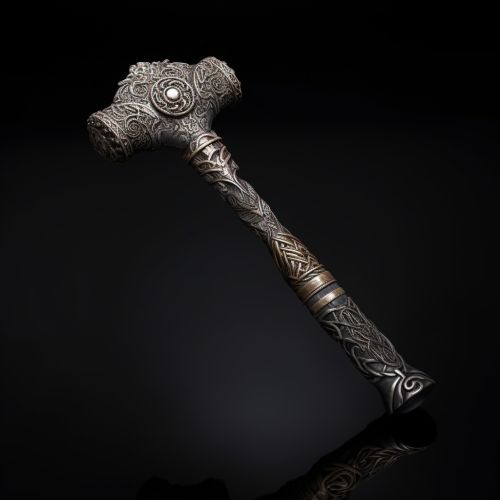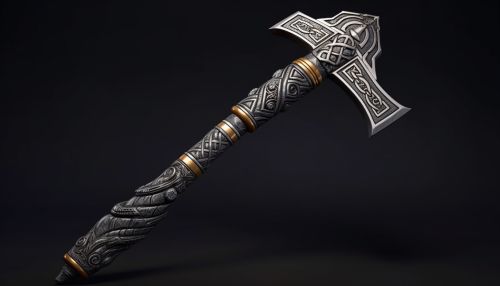Thor
Origins
In Norse mythology, Thor is a hammer-wielding god associated with thunder, lightning, storms, sacred groves and trees, strength, the protection of mankind, and also hallowing and fertility. The cognate deity in wider Germanic mythology and paganism was known in Old English as Þunor and in Old High German as Donar, stemming from a Common Germanic *Þunraz (meaning "thunder").
Mythology
Thor is a prominently mentioned god throughout the recorded history of the Germanic peoples, from the Roman occupation of regions of Germania, to the tribal expansions of the Migration Period, to his high popularity during the Viking Age, when, in the face of the process of the Christianization of Scandinavia, emblems of his hammer, Mjölnir, were worn and Norse pagan personal names containing the name of the god bear witness to his popularity.
Mjölnir


Thor is commonly associated with his hammer, Mjölnir. This weapon, which is also his main attribute, was feared by the Jotnar, the enemies of the gods. The hammer was made by the dwarves Brokkr and Sindri and had the power to level mountains. It was said to always return to Thor when thrown.
Family
Thor is the son of Odin and Fjörgyn, and has numerous brothers, such as Baldr. He is often described as fierce-eyed, red-haired and red-bearded.
Ragnarök
During the event of Ragnarök, Thor is foretold to kill the serpent Jörmungandr but to fall to the earth and die after walking nine paces, having been poisoned by the serpent's venom.
Worship
Into the modern period, Thor continued to be acknowledged in rural folklore throughout Germanic regions. Thor is frequently referred to in place names, the day of the week Thursday ("Thor's day"; Old English Thunresdæg, Thunor's day; German "Donnerstag" Donar's day; Dutch "donderdag") bears his name, and names stemming from the pagan period containing his own continue to be used today.
In popular culture
In the modern era, Thor continues to be referenced in popular culture. His character was appropriated for comics by Marvel Comics in the 1960s, and he has since become a staple of the Marvel Universe.
